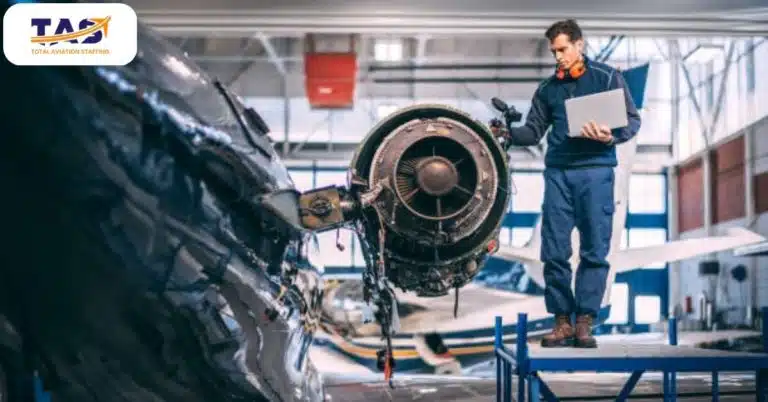The Benefits of Being a Quality Analyst

Quality analysts play a vital role in ensuring that products and services meet industry standards and customer expectations. While the job can be demanding, the benefits of being a quality analyst are numerous and far-reaching. From competitive salaries to career advancement opportunities, quality analysts are in high demand across a wide range of industries.
Let us explore the various benefits of being a quality analyst, with a focus on the aviation industry. Whether you’re just starting or looking to take your career to the next level, read on to discover the many advantages of this exciting and rewarding profession.
1. Job Security
Job security is one of the most significant benefits of being a quality analyst in aviation. As the aviation industry continues to grow and expand, the need for skilled professionals who can ensure the safety and quality of aircraft becomes increasingly important. This high demand for quality analysts creates a sense of job security that is difficult to find in other industries.
As a quality analyst, your skills and experience will always be in demand, which means you can enjoy stable employment with the potential for career growth and advancement. Additionally, the aviation industry is known for its strong commitment to employee training and development, which means that you will have access to ongoing training and education opportunities to help you stay up-to-date with the latest industry developments.
If you are looking for a challenging and rewarding career in aviation, becoming a quality analyst is an excellent choice. With job security, competitive pay, and a range of benefits, this career path offers the stability and potential for growth that many professionals are seeking.

2. Improved Communication Skills
Being a quality analyst in aviation can improve your communication skills in many ways. As a quality analyst, you will need to communicate effectively with a variety of stakeholders, including management, technical teams, and customers. Clear and concise communication is crucial to ensure that everyone is on the same page and that tasks are completed correctly and efficiently.
Here are some specific ways that being a quality analyst in aviation can improve your communication skills:
Providing feedback: Quality analysts must provide feedback on technical documents, audits, and reports. This requires clear and concise communication to ensure that the feedback is understood and acted upon.
Collaborating with technical teams: Quality analysts work closely with technical teams, including engineers, mechanics, and other professionals. Effective communication is essential to ensure that everyone is working towards the same goals.
Communicating with customers: Quality analysts may be responsible for communicating technical information to customers. They must be able to explain complex information in a way that is easy to understand.
Writing reports: Quality analysts often write reports detailing their findings and recommendations. This requires excellent writing skills and the ability to convey technical information clearly and concisely.
Presenting information: Quality analysts may need to present their findings to management, technical teams, or customers. Effective presentation skills are crucial to ensure that the information is conveyed accurately and clearly.
Don’t forget the secret ingredient: excellent communication skills. By mastering the art of collaboration, feedback, report writing, and presentations, you can take your career to new heights. It’s time to communicate like a pro and land that dream job!

3. Career Advancement
Quality analysts play a critical role in ensuring the safety and reliability of aircraft, and as such, they are highly valued in the aviation industry.
Here are some specific ways that being a quality analyst in aviation can lead to career advancement:
Specialization: Quality analysts can specialize in specific areas of aviation, such as engine maintenance, avionics, or regulatory compliance. Specialization can lead to more opportunities for advanced roles and higher pay.
Management: Many quality analysts go on to become managers, overseeing teams of quality analysts or other technical teams. Management roles often come with increased responsibility and higher pay.
Regulatory Compliance: As regulatory compliance becomes increasingly important in the aviation industry, quality analysts with expertise in this area are in high demand. Quality analysts who specialize in regulatory compliance can take on advanced roles in this field.
Consulting: Quality analysts with significant experience in the aviation industry may transition to consulting roles, where they can provide guidance and expertise to other companies.
From the runway to the boardroom, the sky’s the limit for Quality Analysts in aviation! Whether you specialize in specific areas, take on management roles, become an expert in regulatory compliance, or transition to consulting, the opportunities for career advancement are endless. With determination and hard work, you can soar to new heights in your career and take your earning potential to the next level.

4. Competitive Salaries
With their critical role in ensuring the safety and reliability of aircraft, quality analysts in this field can enjoy competitive salaries and a fulfilling career.
Here are some specific reasons why being a quality analyst in aviation can lead to competitive salaries:
Specialization: Quality analysts who specialize in specific areas, such as engine maintenance or avionics, may be able to command higher salaries due to their expertise.
Experience: Quality analysts with significant experience in the aviation industry may be able to negotiate higher salaries due to their knowledge and skills.
Industry Demand: As the aviation industry continues to grow, there is an increasing demand for quality analysts to ensure the safety and reliability of aircraft. This demand can lead to higher salaries and better benefits.
Regulation Compliance: With increasing regulatory requirements in the aviation industry, quality analysts with expertise in this area are highly valued and can command higher salaries.
In the world of aviation, Quality Analysts are the real MVPs, and their salaries reflect it! By leveraging their specialization, experience, and regulatory compliance expertise, quality analysts can negotiate some seriously impressive compensation packages. So, fasten your seatbelt and get ready to take your career to new heights – because with an aviation career, the sky’s the limit!

5. Critical Thinking and Problem-Solving Skills
Being a quality analyst in aviation can improve critical thinking and problem-solving skills due to the complex and dynamic nature of the aviation industry.
Here are some specific reasons why being a quality analyst in aviation can enhance these skills:
Safety Criticality: The aviation industry is highly regulated and safety-critical, requiring quality analysts to analyze and solve problems that could impact the safety and reliability of aircraft.
Multifaceted Challenges: Quality analysts in aviation face multifaceted challenges that require critical thinking and problem-solving skills, such as analyzing data from multiple sources, identifying patterns and trends, and making recommendations for improvements.
Technical Complexity: The aviation industry is highly technical and requires quality analysts to have a deep understanding of aircraft systems and maintenance processes. This knowledge allows them to identify technical issues and develop solutions that improve overall aircraft performance.
Collaborative Work Environment: Quality analysts in aviation work in a collaborative environment with other stakeholders, such as maintenance crews, pilots, and engineers, to ensure that aircraft are safe and reliable. This collaborative work environment requires strong problem-solving skills and the ability to work effectively with others.
As a Quality Analyst in aviation, you’ll be a master problem-solver and critical thinker, ready to tackle any challenge that comes your way! From analyzing complex data to identifying technical issues, you’ll use your skills to ensure the safety and reliability of aircraft. Plus, you’ll work in a collaborative environment with other aviation pros, making every day an exciting adventure.

Takeaways
Being a quality analyst comes with numerous benefits. Not only do you get to improve your critical thinking and problem-solving skills, but you also enjoy job security and competitive salaries. Additionally, being a quality analyst in the aviation industry can give you the chance to travel the world and work with people from diverse cultural backgrounds. And let’s not forget the ultimate benefit of being a quality analyst: you get to be the person who ensures that things work the way they’re supposed to! So if you’re looking for a challenging yet rewarding career path, becoming a quality analyst might just be the perfect fit for you.
Ready to take your career to new heights in the aviation industry? Don’t wait any longer, start exploring the opportunities available to you as a quality analyst! Whether you’re looking for job security, competitive salaries, or the chance to improve your critical thinking skills, being a quality analyst has it all. Total Aviation Staffing can connect you with top companies in the industry, so you can find the perfect role to suit your aspirations. Take control of your future today and start your journey towards a fulfilling career in aviation by exploring the open sky opportunities with Total Aviation Staffing.
